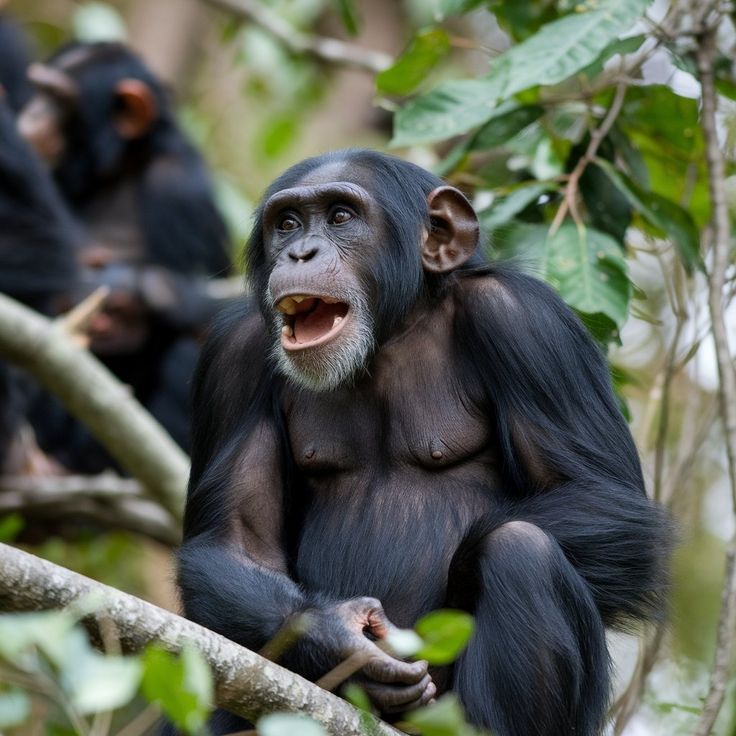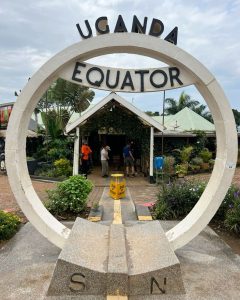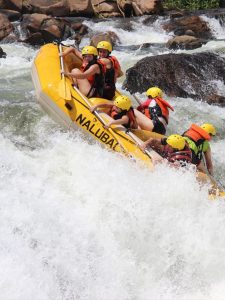What makes Rwanda a top destination for chimpanzee trekking?
Rwanda is one of Africa’s most remarkable primate trekking destinations, attracting wildlife enthusiasts from around the world for its exceptional chimpanzee encounters. Nestled in the heart of East Africa, the country offers a unique blend of breathtaking landscapes, rich biodiversity, and well-preserved habitats. Chimpanzee trekking here is not just an activity—it is a journey deep into pristine rainforests where visitors witness one of humankind’s closest relatives in their natural environment. Rwanda Chimpanzee Trekking Tours
The country’s premier chimpanzee trekking sites—Nyungwe Forest National Park and Gishwati-Mukura National Park—offer guided treks led by experienced rangers. Rwanda’s dedication to conservation ensures that each trek supports wildlife protection while giving visitors an ethical and memorable experience. The forests are not just home to chimpanzees; they shelter countless other primate species, rare birds, medicinal plants, and unique insects. This makes chimpanzee trekking in Rwanda an immersive nature adventure that goes beyond observing a single species. Rwanda Chimpanzee Trekking Tours
Which national parks in Rwanda offer chimpanzee trekking?
The two main chimpanzee trekking destinations in Rwanda are Nyungwe Forest National Park and Gishwati-Mukura National Park.
Nyungwe Forest National Park is the most popular and well-established site for chimpanzee trekking in the country. This vast rainforest covers over 1,000 square kilometers and is one of the oldest rainforests in Africa, estimated to have existed for millions of years. Nyungwe is home to approximately 500 chimpanzees, including several habituated groups that visitors can track. The park’s network of well-maintained trails and its high level of ranger expertise make it the go-to choice for most travelers.
Gishwati-Mukura National Park is smaller and less visited, which makes it ideal for travelers who prefer a quieter, more intimate experience. The park’s chimpanzee population is smaller and less habituated, so sightings can be more challenging, but the experience is equally rewarding. Trekking here offers a sense of remoteness and exclusivity. Additionally, the park’s ongoing restoration programs provide visitors with an insight into Rwanda’s efforts to rehabilitate degraded forest areas.
How much does a chimpanzee trekking permit in Rwanda cost?
The cost of a chimpanzee trekking permit in Rwanda depends on your residency status and the park you choose.
For Nyungwe Forest National Park, permit fees generally range as follows:
- Foreign non-residents: USD 90–100 per person
- Foreign residents: USD 60–75 per person
- East African citizens: USD 25 per person
In Gishwati-Mukura National Park, the permit price for foreign visitors is around USD 100. An important note is that visitors to Gishwati-Mukura are required to stay at the Forest of Hope Guest House, which manages treks and provides guides.
These permits cover the cost of entry to the park, the services of professional guides, armed ranger escorts for safety, and one hour of observation with the chimpanzees once they are located. Booking early is strongly recommended, as daily trekking numbers are limited to protect the animals from excessive exposure to humans.
When is the best time to go chimpanzee trekking in Rwanda?
The best time to go chimpanzee trekking in Rwanda is during the dry seasons—from June to September and from December to February. During these months, the trails are less muddy, making the hike more comfortable. Additionally, the reduced vegetation density improves visibility, giving trekkers clearer views of the chimpanzees once they are found.
However, trekking is possible all year round. The rainy seasons—March to May and October to November—bring lush, green landscapes and fewer crowds. While the trails can be slippery, the forests are vibrant and alive with activity. Some travelers prefer the rainy season for photography because the forest’s greenery appears more vivid and the lighting can be softer for wildlife shots. Ultimately, your choice depends on whether you prioritize easier trekking conditions or a quieter, more secluded experience.
How do I book a chimpanzee trekking permit in Rwanda?
You can book a chimpanzee trekking permit in Rwanda in two main ways: directly through the Rwanda Development Board (RDB) or via a licensed tour operator.
Booking directly with the RDB involves submitting your preferred date, providing passport details, and making payment in advance. The RDB will then issue a confirmation document that you present on the day of your trek. This method is ideal for independent travelers who prefer to arrange their own logistics.
Alternatively, using a licensed tour operator is a popular choice. Operators handle all aspects of the booking process, arrange transportation, secure accommodations, and ensure you are well-prepared for the trek. This is particularly helpful for travelers who are combining chimpanzee trekking with other activities like gorilla trekking or cultural tours.
Regardless of your booking method, it’s important to secure your permit several months in advance, especially if you plan to visit during the peak dry seasons when demand is high.
What should I pack for chimpanzee trekking in Rwanda?
Packing the right gear ensures a comfortable and safe trekking experience. Essential items include:
- Sturdy hiking boots with good grip for navigating uneven and sometimes slippery trails
- Lightweight, long-sleeved shirts and trousers to protect against insect bites and thorny vegetation
- Waterproof jacket for sudden tropical showers
- Insect repellent to ward off mosquitoes and other insects
- Sun protection such as a hat, sunglasses, and sunscreen
- Reusable water bottle with at least 2 liters of water
- Energy snacks for quick boosts during the trek
Optional but useful items include binoculars for bird and wildlife viewing, gardening gloves for pushing through thick vegetation, and a camera with a zoom lens for capturing detailed shots without disturbing the chimpanzees. Hiring a porter is also advisable—they can carry your gear, assist with difficult terrain, and make your trek more enjoyable.
What is the chimpanzee trekking experience like in Rwanda?
A typical chimpanzee trek starts early in the morning, often around 6:30 a.m., to catch the primates when they are most active. Before setting off, guides brief the group on safety, park rules, and trekking etiquette. They also update trekkers on the location of the chimpanzee groups, as trackers will have been following their movements since dawn.
Once on the trail, expect to walk through dense forest, up and down steep slopes, and sometimes through muddy or slippery areas. The duration of the trek can range from one to four hours, depending on the chimps’ location. When you finally encounter them, you will have up to one hour to observe their natural behavior—watching them feed, groom each other, or communicate with calls and gestures.
Unlike gorillas, which are more stationary, chimpanzees are fast-moving and often spend time in the treetops. This means you may need to follow them at a brisk pace to keep up. The reward is witnessing their playful, intelligent, and social nature up close—an unforgettable wildlife experience.
What rules should I follow during chimpanzee trekking?
To protect both visitors and the chimpanzees, strict guidelines are enforced:
- Maintain a minimum distance of 8 meters from the chimpanzees
- Do not eat or drink near the animals
- Speak quietly and avoid sudden movements
- Do not use flash photography
- Avoid trekking if you are ill, as chimpanzees are susceptible to human diseases
- Follow all instructions from guides and rangers at all times
These rules help minimize stress to the animals and reduce the risk of disease transmission. They also ensure a safe and respectful encounter for all parties involved.
What other wildlife can I see during chimpanzee trekking in Rwanda?
Rwanda’s chimpanzee trekking sites are rich in biodiversity. In Nyungwe Forest National Park, you may encounter other primates such as L’Hoest’s monkeys, grey-cheeked mangabeys, olive baboons, and the striking black-and-white colobus monkeys. Birdwatchers will find the park a paradise, with over 300 recorded bird species, including many Albertine Rift endemics.
The forest also hosts small mammals like duikers, giant forest squirrels, and various reptiles and amphibians. In Gishwati-Mukura, apart from chimpanzees, you might spot golden monkeys and a variety of butterfly species. This diversity makes every trek a multi-layered wildlife experience, even beyond the primary goal of seeing chimpanzees.
How can I combine chimpanzee trekking with other Rwanda attractions?
Many visitors combine chimpanzee trekking with gorilla trekking in Volcanoes National Park, located in northern Rwanda. This combination offers the chance to see both of Africa’s great apes in a single trip. Additionally, Nyungwe Forest is conveniently located near Lake Kivu, a scenic destination for relaxation after trekking.
Cultural experiences, such as visiting traditional villages or Kigali’s museums, provide deeper insight into Rwanda’s heritage and history. For adventurous travelers, hiking trails like the Congo-Nile Divide offer multi-day trekking experiences through some of the country’s most beautiful landscapes.
How do I get to the chimpanzee trekking parks in Rwanda?
From Kigali, reaching Nyungwe Forest National Park typically takes 5–7 hours by road. The journey is scenic, passing through rolling hills, tea plantations, and small towns. For travelers short on time, a domestic flight from Kigali to Kamembe, followed by a short drive, is available.
Gishwati-Mukura National Park is located in the northwest, and while less accessible, it offers a peaceful, off-the-beaten-path experience. Most visitors arrange transportation through their tour operator, who can coordinate road transfers and accommodation. Rwanda Chimpanzee Trekking Tours
Why should I choose Rwanda for my chimpanzee trekking adventure?
Rwanda offers one of the most ethical and conservation-focused chimpanzee trekking experiences in Africa. The country’s well-managed parks, knowledgeable guides, and commitment to wildlife protection ensure that every trek is safe, respectful, and deeply rewarding. By purchasing a permit, visitors directly support conservation programs and community development initiatives, creating a positive impact that extends far beyond their adventure. Rwanda Chimpanzee Trekking Tours
In Rwanda, chimpanzee trekking is more than just seeing wildlife—it is contributing to the preservation of one of the planet’s most important ecosystems and connecting with nature in a profound way.




